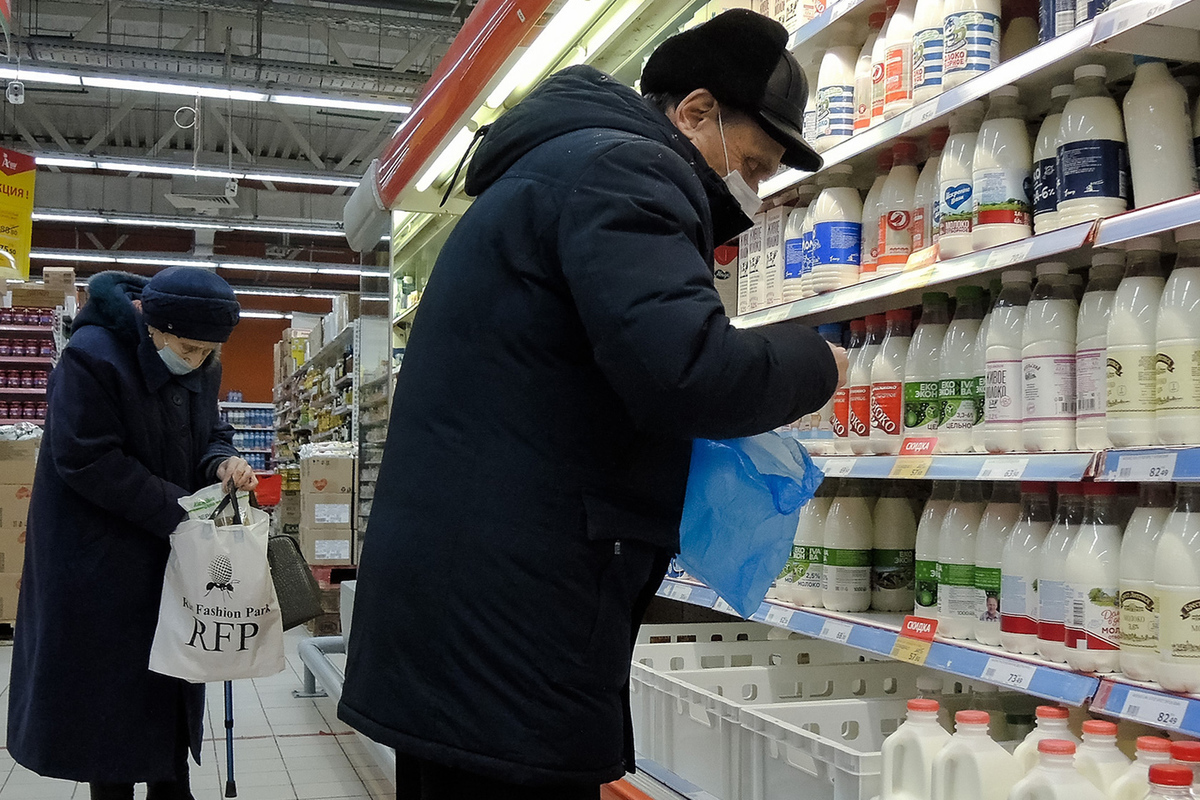The rapid growth of GDP threatens to empty the pockets of Russians: experts explained the paradox
[ad_1]

The economic achievements of the state please only statisticians
The pace of the Russian economy is gaining momentum. According to the results of the II quarter, the growth of the gross domestic product (GDP) amounted to almost 5%. According to Rosstat data, the main indicator of the financial system of our country has entered the positive zone for the first time since the beginning of 2022. But independent experts urge not to rush to rejoice about this: this growth has so far given little to ordinary citizens. Inflationary risks, as well as limited opportunities for the domestic economy, may not replenish, but, on the contrary, empty the pockets of the population even more.
The Russian economy showed a higher GDP growth only in the fourth quarter of 2021 – then the gross domestic product added as much as 5.8%. But that was before the start of the NWO…Thus, the current fortification is a record for the last year and a half. According to Rosstat, the highest results were demonstrated by passenger traffic (plus 19.8%), wholesale trade (12.5%), processing (11%) and construction (9.8%).
But how to interpret the current rise in GDP? Does it mean that the “bottom” of the fall of the domestic economy has been passed and it has fully adapted to the unexpected sanctions pressure?
According to Igor Nikolaev, chief researcher at the Institute of Economics of the Russian Academy of Sciences, on the one hand, the technical strengthening of GDP is taking place at a massive pace, on the other hand, this process is carried out automatically, but by no means a natural way to improve the financial situation of any power. The key factor in the noticeable increase in GDP was budget injections into the sphere of public administration and strengthening of military security, as well as subsidized social spending. Previously, the corresponding annual costs amounted to 7-8% of the gross domestic product, and now more than 11% is allocated for similar purposes. The need to support these areas causes few protests and doubts, but budgetary reserves are unstable and can soon be depleted.
“In this regard, there is no certainty that the Russian economy has embarked on a path of sustainable growth. As follows from the report of the Ministry of Finance, the deficit of the federal budget of our country in January-July amounted to 2.8 trillion rubles. According to the government’s plans, for the whole of 2023 this figure should not exceed 2.9 trillion, the expert notes. – You can juggle statistical data as much as you like, but in any case, you have to come to terms with the fact that negative economic circumstances prevail over positive ones. The growth rate of Russian GDP for this year, even despite the current breakthrough, is unlikely to exceed a rather modest 2-2.5%, and in 2024 it will slow down even more.”
Investment strategist of Aricapital Management Company Sergey Suverov names other dubious factors of the current drivers of economic growth. Russian banks continue to issue record volumes of loans: in May alone, our compatriots received more than 1.4 trillion rubles of borrowed funds, which is about 100 billion more than a month earlier. The largest increase was observed in the non-purpose loans sector. The rules of such loans are simplified to a minimum: the borrower is not burdened by the strict framework of a financial institution and has the right to spend funds at his own discretion. The money received is given to each person in cash or on a plastic card. At first glance, the total money supply in the state is growing by leaps and bounds. Theoretically, the “extra” money is supposed to fuel economic growth, since it allows increasing demand and the production of additional marketable products.
But there is also the other side of the coin. An excessive increase in the amount of cash that is not backed by goods and services can itself accelerate price increases. There is a significant contribution to the inflationary spiral, the speed of which can step by step get out of state control: consumers will buy up everything that remains on the market and on the shelves, caring only directly about the fact of buying a product, the cost of which will constantly increase. It can be household appliances, cars and even real estate. “The catch is that people spend capital that has fallen from the sky for momentary support of their own well-being, not caring about how they will return the unreasonably spent hundreds of thousands of rubles,” the analyst warns. “The slight growth in real incomes of Russians does not allow us to hope for an equilibrium balance between debt obligations and steadily earned money.” Such a bias, according to the expert, can cause massive personal bankruptcies, the ruin of credit institutions and, ultimately, the destruction of the financial stability of the entire economic system of the state.
[ad_2]
Source link






